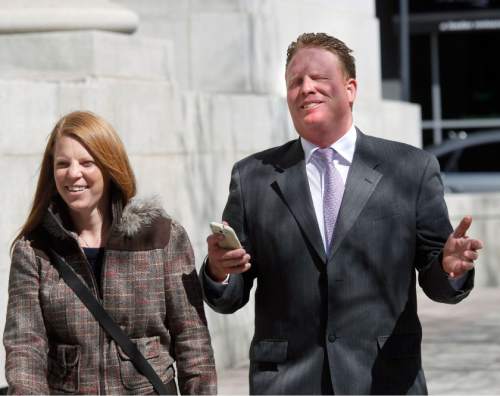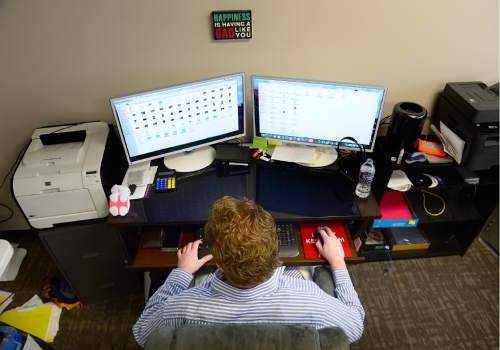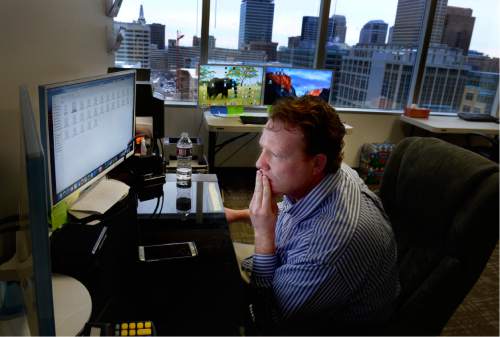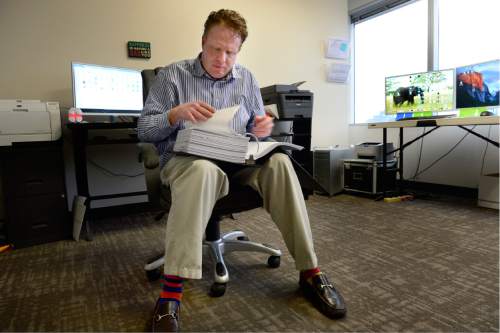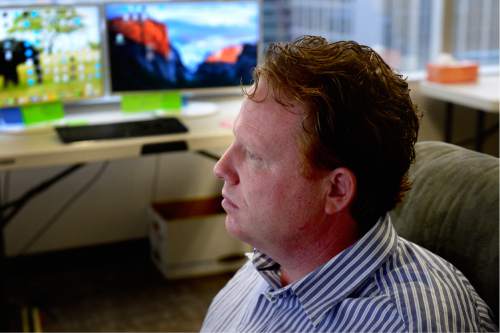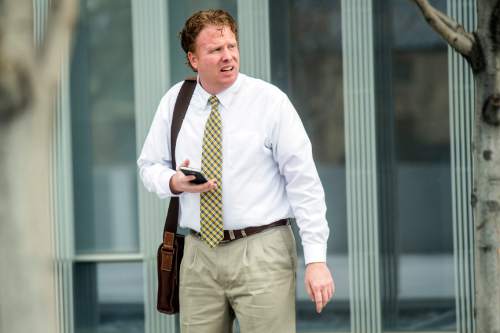This is an archived article that was published on sltrib.com in 2016, and information in the article may be outdated. It is provided only for personal research purposes and may not be reprinted.
A witness who once was a defendant in the criminal case against St. George businessman Jeremy Johnson testified Friday that problems arose with credit-card chargebacks at Johnson's online marketing company because of the actions of outside firms.
And Loyd Johnston, a former department manager at I Works, said that the strategies that I Works came up with to deal with the problems were known to the companies that helped it set up new credit-card accounts with Wells Fargo Bank.
The testimony came at the end of the fourth week of the trial of Johnson and two other former I Works employees on 86 charges related to bank-fraud allegations.
In contrast to Johnston, an expert hired by the government — who is expected to be the last prosecution witness — said he had come to the opinion that Johnson and I Works had been deceptive and committed fraud.
Johnson and co-defendants Ryan Riddle and Scott Leavitt are alleged to have set up a series of so-called "shell companies" using the names and information from employees, family and friends to obtain new bank accounts in 2009 and 2010. That was necessary, the indictment alleges, because banks shut down I Works accounts after a surge in chargebacks in early 2009.
Johnston said a company not related to I Works called Nature's Best, which sold products based on the acai fruit, had caused a huge number of initial chargebacks. The new company was run by two men in their 20s without experience in business, he said.
"We started processing so many transactions right out of the gate," he said, "and then those issues that came as a result of that processing put us in a lot of chargeback [monitoring] programs because sales dropped off really fast and there were no sales to offset it."
Johnston was called as a government witness earlier in the trial, but his cross-examination by two of the defendants was postponed in favor of other witnesses from out of state.
Johnston was indicted in 2013, along with Johnson and other I Works employees, after Johnson and the U.S. attorney's office had failed to complete a plea agreement. He was dismissed from the case after his lawyer argued he had been extended immunity that was improperly withdrawn.
Johnston was asked about the immunity issue and his treatment by members of the U.S. attorney's office for Utah during cross-examination. Assistant U.S. Attorney Brent Ward, who was then the chief prosecutor on the case, extended immunity, Johnston said, in describing a meeting with prosecutors and an IRS agent.
Then, under questioning from his former boss Johnson, who is acting as his own attorney during the trial, Johnston said Ward was upset when Johnston apparently wasn't saying what Ward thought he should be saying regarding I Works' operations.
"I felt like if I didn't say what he wanted me to say," Johnston said, "the immunity would be revoked."
Johnson also asked Johnston about which strategies company officials had come up with to try to deal with the chargebacks and whether the companies that arranged for credit-card processing on behalf of banks had been fully informed about the I Works plans.
"We were very open about what we were doing," Johnston said, later adding, "We pretty much shared everything with them."
Johnston's testimony contradicted that of a former top employee of CardFlex Inc., the company that established the merchant accounts for card processing for I Works, who asserted that Johnson and others had told them they were changing their business model to provide support services to new independent business owners, but instead formed the shell companies.
Prosecutors also began questioning their last scheduled witness, Ken Musante, an expert hired by the government to listen to the testimony and give the jury his opinion.
Musante is a veteran of the credit-card-payments industry, having worked at Wells Fargo and for a merchant processor in Eureka, Calif. He is a co-founder and currently president of Eureka Payment Systems.
Musante has sat through all four weeks of the government's case, and on the witness stand he said he was prepared to offer an opinion.
"There was a clear pattern of deception," he said.
Musante will be back on the stand Monday, when the trial resumes so prosecutors can finish questioning him. The defendants then will get to cross-examine Musante, and prosecutors are expected to rest their case afterward.
The defense is scheduled to begin its case Tuesday, but U.S. District Judge David Nuffer has tentatively left them only six days to complete it after four weeks of prosecution witnesses and evidence. Nuffer said, however, that he would reconsider the schedule next week.


